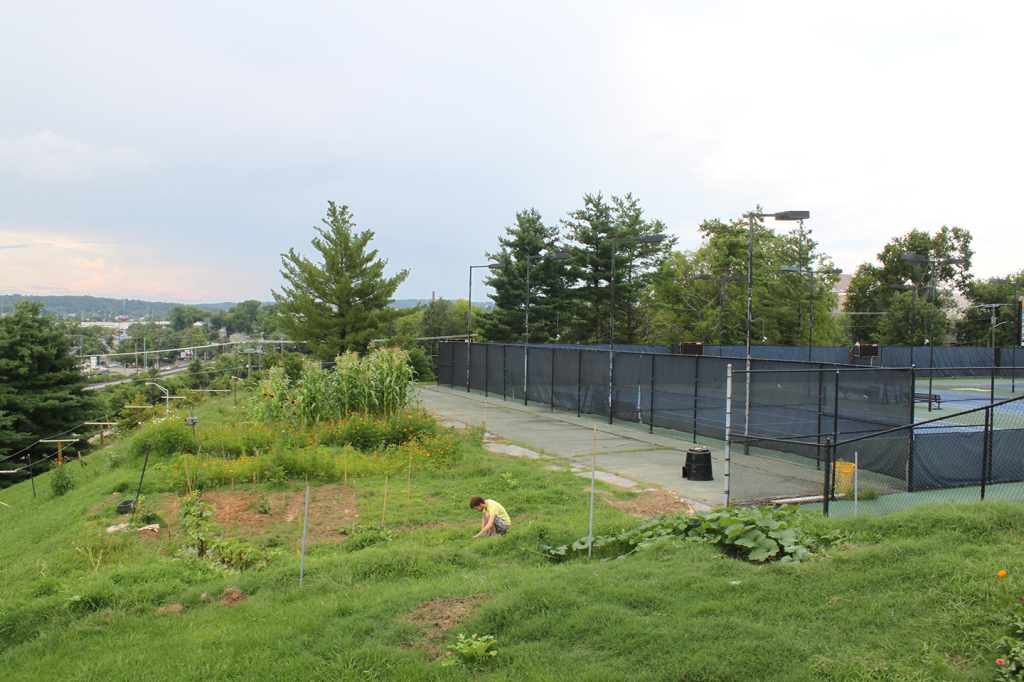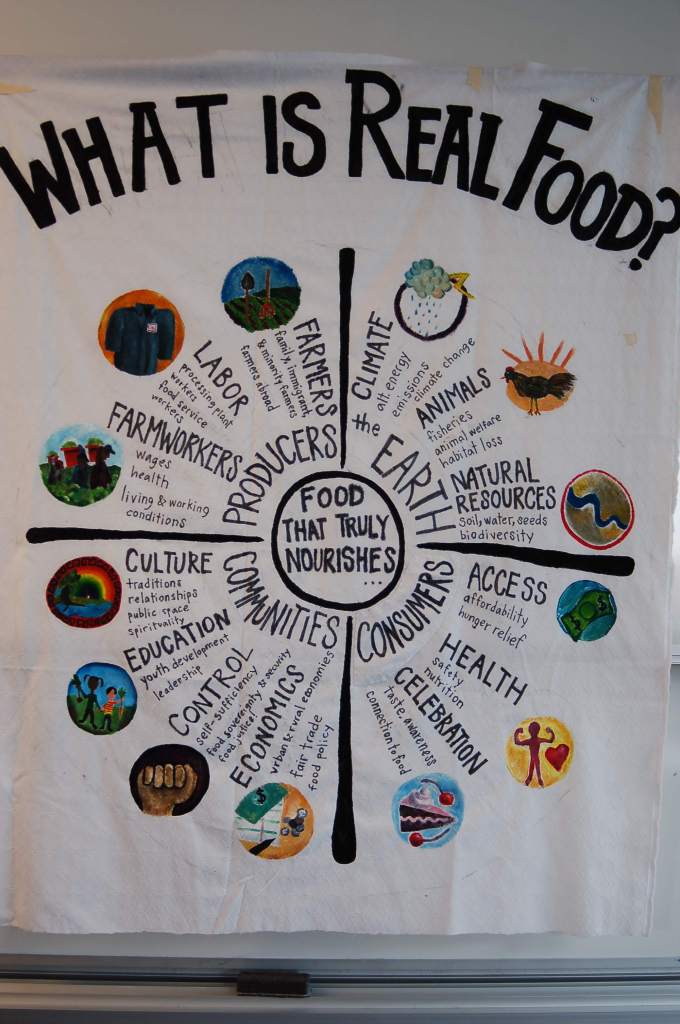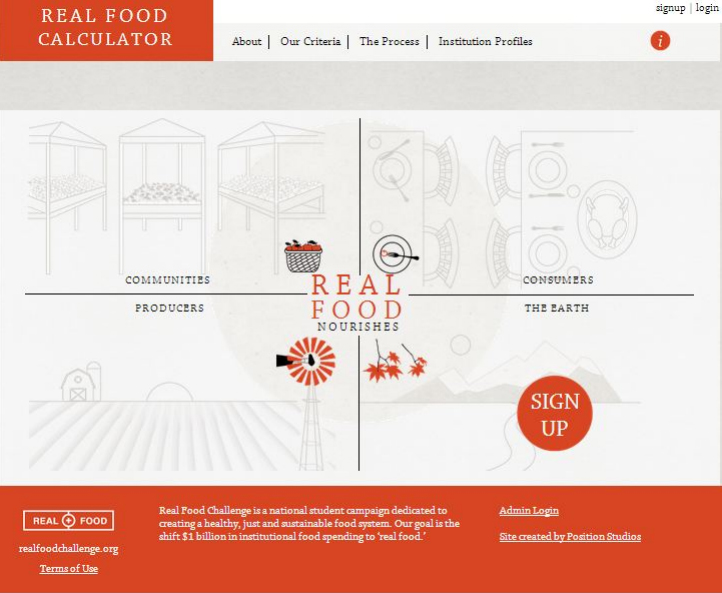Take a moment to consider how many preservatives were in your last meal. We’re talking packaged, processed foods with unusual additives or artificial flavoring. Now think about the last time you ate a meal that didn’t have a long list of ingredients, half of which you don’t know and can barely pronounce.
Enter: real food. What is real food, and why does it matter? Even though you’re in college, eating nutritious and sustainably raised food is important for both you and the planet … like really, really important. If we don’t keep the planet healthy, we’re going to run out of food, and then the apocalypse will actually happen. Or we’ll turn into robots. Either way, not cool.
Oh, and then there’s the fact that the United States has seen rises in obesity and diabetes because of some of the food we’re growing. How messed up is that?

UT’s Project VEGGIE garden. Photo by Hannah Cather
So, who’s making real food a priority? An organization called The Real Food Challenge. They’re working with college students across the nation to incorporate more “real food” in their campus dining facilities. A group of students at UT is doing their best to convince the higher-ups to sign the Real Food Campus Commitment. This contract states that by 2020, 20% of the food on campus will be real.

Photo courtesy of Real Food Challenge
How is real food defined? There are four different ways food can qualify. It has to be either local/community based, fair, ecologically sound or humane. The food has to meet just one of these expectations to qualify as real food. The four categories are based on the idea that food should nourish producers, the earth, consumers and the community. Sounds pretty easy, but what exactly do any of these things mean?
- Local food might be the easiest to grasp. If the food was grown in a garden on campus, then it definitely counts. When food is sourced locally, it supports the local economy by keeping money in the community. It also travels fewer miles to reach your mouth, which boosts flavor. If the food is seasonal and fresh, it typically has a higher nutrient content. This includes UT’s Project VEGGIE garden.
- Fair food deals with the food production, distribution and preparation. This means that the people work in fair conditions, like receiving a living wage and having an equal opportunity for employment.
- Ecologically sound means that all those involved with the food production (farms and businesses) place an emphasis on biodiversity and preserving natural resources (energy, wildlife, water, air and soil).
- Humane food involves the way the animals were raised. This basically means the animals were raised in low-stress environments without hormones or unnecessary medication.

Photo courtesy of Real Food Challenge
The Real Food Challenge has a calculator that schools can use to decide if the food qualifies as real food. There are different levels of classifications, and sometimes it gets tricky to decipher how real something is, but at least someone is trying. Real food matters. It tastes better, it keeps the planet from disintegrating and it makes people happy. Really.

